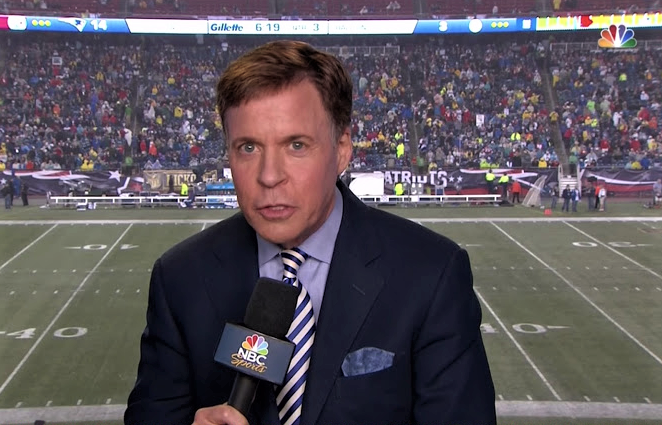I’m not a football fan. Never have been. Like boxing, I just saw too much brutality in it, and the more brutal it got, the more fans seemed to cheer.

However, I never understood the ultimate consequence of all that head-bashing until I saw the 2015 film, Concussion.
In possibly the most compelling performance of his career, Will Smith plays Nigerian-American forensic pathologist Dr. Bennet Omalu who works at the Allegheny County, Pennsylvania coroner’s office.
In performing an autopsy on Pittsburgh Steelers Mike Webster, Omalu is faced with a question he can’t answer: how can a seemingly healthy man spend the last several years of his life going from Hall of Fame hero to self-mutilation, homelessness and die of a heart attack at 50 years of age?
Running Webster’s brain tissue through a series of tests, Omalu ultimately discovers the disturbing answer: repeated concussions to Webster’s brain throughout his career brought about a disease we now know as Chronic Traumatic Encephalopathy (CTE). And Mike Webster wasn’t the only player to have been afflicted.
Omalu’s discovery leads to a confrontation with the NFL and Football Commissioner Roger Goodell who are ready to sue him for fraud for an obvious rational: millions of fans and billions of dollars.
Concussion is not just another message film. It’s a film with an important point to make, and that point was not lost on NBC football host Bob Costas when he attended the film’s premier.
Costas has a reputation for not only being an outstanding broadcaster but as one of the very few on-air talents who is willing to speak truth to power and the public as well. Unfortunately, those two elements collided when Costas spoke at a symposium at the University of Maryland on what the evidence now shows:
“The reality is that this game destroys people’s brains — not everyone’s, but a substantial number. It’s not a small number, it’s a considerable number.”
Costas’ remarks did not go unnoticed by the media, and in a frank interview with CNN’s Michael Smerconish, he doesn’t hold back. In fact, he praises NBC Sports for allowing him to discuss this issue and others in past broadcasts.
Obviously, things changed.
“Within an hour of his appearance on CNN,” The New York Times reported (Feb. 11), “he said, he received a text message from Sam Flood, an executive producer at NBC. ‘I think the words were, “You’ve crossed the line,” ’ Mr. Costas told ESPN…
“An NBC Sports spokesman confirmed that Mr. Costas had been told that he had ‘crossed the line’ but said it was not because he had discussed the topic of brain injuries and football. Instead, the spokesman said, it was because Mr. Costas had agreed after the University of Maryland symposium that he would no longer discuss the topic in interviews without prior approval from NBC Sports.”
And Costas had not asked for the network’s approval.
“Shortly after the CNN appearance, Mr. Costas said, he was told he would not be part of NBC’s coverage of Super Bowl LII in February 2018. It was a sudden breakup between NBC and Mr. Costas, its longtime host of the Olympics and of ‘Football Night in America,’ the network’s highly rated Sunday N.F.L. pregame show. Last year, he described the separation in public as ‘mutually agreeable.’ ”
In The New York Times piece, Costas puts it into context:
“Look, the NFL isn’t just the most important sports property, it’s the single most important property in all of American television.”
Halfway into the film Concussion, Dr. Omalu is talking to his boss and mentor Cyril Wecht. Omalu doesn’t understand why the NFL is suing him over the legitimacy of his research. The exchange between the two perfectly encapsulates why the NFL will not change anytime soon.
“What do they want?” Omalu asks.
“The NFL wants you to say you made it all up,” Wecht tells him.
“I made it up?”
“They’re accusing you of fraud,” Wecht says.
“If you retract, you’ll be fine,” a colleague adds. “This all goes away.”
“Why? Why are they all doing this?” Omalu asks.
“They’re terrified of you,” Wecht explains. “Bennet Omalu is going to war with a corporation that has 20 million people on a weekly basis craving their product the same way they crave food. The NFL owns a day of the week, the same day the Church used to own. Now it’s theirs.”
As for Costas, I’ve no doubt he’ll be fine, but what about the health and welfare of hundreds of players in football today and what about tomorrow’s players? Who will stand up for them?
Comments
Leave a Comment










Bob Costas, in my opinion, is a stand-up person and his narrative regarding CTE would be appropriate in a future edition of What Do You Stand For?
I remember when he started at KMOX in St. Louis working with radio legend Jack Carney. Working with Carney, Bob not only developed an ease with the microphone – and a gift for humor – but also made a connection with listeners like me by being honest and trustworthy.
The pretext for [NBC Sports] removing Mr. Costas is, in my opinion, obvious.